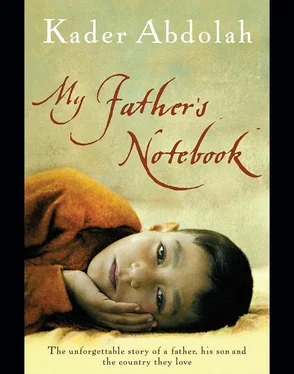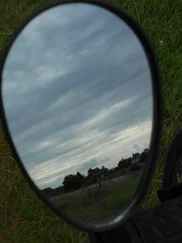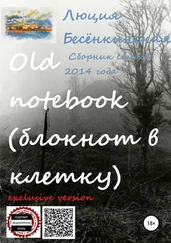“Mother,” Golden Bell replied, “why are you suddenly different now that Ishmael’s here?”
“I’m no different from usual. But I need to say something to him before he rushes off again. Ever since that Jamileh came to stay with us, Golden Bell has been—”
“What’s Jamileh got to do with it?” sputtered Golden Bell.
“—growing away from me. There, now I’ve said what I had to say.”
I felt like an outsider. I wanted to take Tina in my arms and say, “You’re right, but now you can stop being so scared. The years of hardship are over. I’ll be coming home more often. Everything’s going to be fine.”
But I didn’t. I couldn’t. I realised that my heart had hardened.
“Tina,” I said, “let me give Father his soup. We’ll talk later.”
I spooned some soup into my father’s mouth, while Golden Bell wiped his chin with a handkerchief.
“Are you going crazy, Father?” I asked. “Why on earth did you tie yourself to that shrine?”
He said nothing, just smiled.
I slept at home that night for the first time in years. It felt strange. As if I were a stranger. My other two sisters were still at home; they weren’t married yet. They had always thought of me as more of a father than a brother, which is why they didn’t come sit by me as readily as Golden Bell did. If we’d had time, that would have changed, but we never got the time.
My father’s grey beard made me realise that the revolution was taking him away from me.
The next day I talked to him and tried to explain that the Mahdi didn’t actually exist. I should have saved my breath.
My father told me that, after his first wife died, he saw the holy man in the well with his own eyes. And the day before yesterday he’d seen a miraculous cure. “A blind man went to bed and when he woke up in the morning, he could see. The holy man had come and cured him in his sleep.”
My father no longer wanted to be an illiterate deaf-mute. He wanted to learn how to read.
“OK, I’ll teach you how to read,” I said. “If you can wait a year, or half a year, I’ll come back home and teach you myself. I promise.”
But my words no longer had any effect. He was completely bewitched by the footprints in the rocks.
A few days later my father grabbed a cane and went out again to look for the holy Mahdi.
We fly over Saffron Mountain
with Khomeini .

We once hoped to transform our country into a paradise. But we didn’t know, or perhaps didn’t want to know, that neither the country, nor its people — nor we, for that matter — were ready for it. We were impatient, in a hurry, anxious to catch up with history, or even to outrun it, as if such a thing were possible. Actually, we deserved the regime of the mullahs. The events taking place in my country over the last century and a half had all pointed to the rise of a spiritual leader. History had pushed Khomeini to the fore. The shah was forced to go. The front page of the nation’s leading newspaper announced in huge capitals: KHOMEINI HAS COME.
Such big headlines were unprecedented in Iranian journalism. So, when I laid the newspaper on my father’s workbench, he immediately understood that something important was happening.
“The shah is gone,” I said to him.
“Gone?”
I picked up a map. “He went to Egypt, then to the Bahamas and then to the United States.”
Egypt? The Bahamas? The United States? He didn’t understand.
The problem was that he couldn’t see the connection between recent events and the shah’s departure.
“And he’s never coming back,” I said.
“Why not?”
My father hadn’t realised that, in following the footprints of the Mahdi, he’d helped to topple the shah.
“Khomeini is now sitting on the shah’s throne.”
He looked at me in surprise.
“Why are you surprised? You wanted Khomeini to come and the shah to go.”
“Me? I didn’t do anything.”
“What do you mean, you didn’t do anything? You took the shah’s picture off the wall and hung up Khomeini’s picture instead. You went out every day and demonstrated, together with thousands of people. Look in the mirror. You even have a long grey beard, like his.”
“Like whose?”
“Khomeini.”
He looked in the mirror, toyed with his beard and seemed to make a startling discovery.
“Where was Khomeini before now?” he signed.
It would be hard to explain in sign language. I knew I’d have to skip over the events of the last century.
“It’s complicated,” I said to him, “but fifteen years ago the shah forced Khomeini to leave the country. He went to live in another country, far away from here. Those two men were enemies. Now that Khomeini is back, he’s made the shah leave the country.”
That would have to do. I pointed to the newspaper. “It says here that three days from now, Khomeini will be flying to Saffron Mountain to visit the sacred well.”
“Why the sacred well?”
“Because he wants to see the holy man.”
“But the well is empty. The holy man is gone.”
I couldn’t explain that, either. “The well isn’t empty,” I said. “The holy man has come back. He’s sitting in the well again, reading his book.”
A helicopter circled above the crowd that had climbed up Saffron Mountain. Thousands chanted in unison: “La ilaha illa Allah! La ilaha illa Allah!”
The helicopter circled again, in response.
“Salaam bar Khomeini!” they roared in unison.
My father pushed through the crowd and climbed even higher. He wanted to be as close to the well as possible. I went where he went, and he helped me over the difficult mountain paths.
I was impressed by the mood of the crowd. In spite of myself, I had been swept up by the religious fervor. Although I didn’t chant the slogans along with the rest, I mentally shouted “La ilaha illa Allah” like a true believer.
Khomeini was now flying directly overhead. I could see him sitting next to the pilot. He waved. Tears sprang to my eyes. I promptly hid my face so my father wouldn’t notice and enthusiastically followed him up the mountain. I wanted to see Khomeini get out of the helicopter and kneel before the sacred well.
I knew this was an important moment in Iranian history. The helicopter hovered above the well and tried to land. Apparently, it wasn’t easy. The pilot made three attempts to land on a slope. The fourth time, he turned the helicopter around and landed with the tail pointing down at the crowd. Thousands of people suddenly burst out: “Gush amad! Gush amad! Yar-e imam gush amad!”
Seven bearded mountain climbers clambered up to the helicopter with ropes and spikes to help the aging leader. Khomeini refused their assistance. Out of respect for the Mahdi, he wanted to walk to the well on his own.
But how was he going to get there?
The mountain climbers had to come up with another plan. They couldn’t let Khomeini scrabble across the rocks in his brand-new imam slippers. That would be unthinkable!
So they opted for a long detour. All seven climbers surrounded Khomeini and guided him down, step by step, without being allowed to touch him. After almost twenty minutes, he finally set foot on the ground around the sacred well. He stumbled, and for a moment the crowd was afraid he was going to fall, but to everyone’s surprise he caught himself and calmly straightened up again. The crowd roared, “Salah ’ala Mohammad! Yar-e imam, gush amad!”
He adjusted his black turban, smoothed down his aba, squared his shoulders — as if he were meeting God Himself — and walked calmly up to the sacred well. I expected him to look directly into it, but he didn’t. Instead, he turned to the left and faced Mecca. He stood for a moment — no doubt reciting a prayer — then stiffly knelt and touched his forehead to the ground.
Читать дальше













